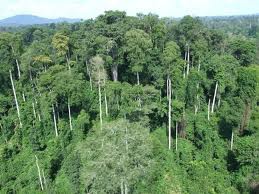The Food and Agricultural Organization (FAO), has urged a scale-up of actions to tackle weak forest law compliance and enforcement. Dr Lamourdia Thiombiano, FAO’s Deputy Regional Representative to Africa, said this has become necessary to stop the severe forest degradation and deforestation, resulting in considerable environmental damage.
The damage by way of soil degradation and loss of productivity, loss of habitats and respective biodiversity, as well as severe reduction in the quantity and quality of services rendered by forest ecosystems, he noted, had combined to significantly change the livelihoods of the rural population.
He said it was important to act firmly in the face of the threat posed to the integrity of forest landscapes, global climate change and the negative economic impact on global markets by illegal logging and trade of illegal timber.
Dr Thiombiano made the call in an address read for him at a workshop held to strengthen the institutional capacity and knowledge-base of small and medium enterprises (SMEs) in the wood industry, to facilitate adherence to the Voluntary Partnership Agreement (VPA), domestic licensing regime to improve forest governance.
It was organized under the European Union (EU)-FAO Forest Law Enforcement Governance and Trade Programme (FLEGT) Project, and brought together wood sellers, processors and transporters.
Dr Thiombiano identified illegal logging, timber smuggling, and trade of illegally-sourced timber in the forest sector, as major problems in many tropical West African countries, including Ghana.
These were costing governments’ huge sums of money with timber-producing countries estimated to be losing between 10 and 15 billion pounds in revenue every year. He recognized the considerable efforts the country was making to address this, since its signing of the VPA with the EU in year 2009, and said that must be sustained.
Mr Edward Obiaw, Director of Resource Management Support Centre (RMSC), said the workshop would help the SMEs to have better understanding of legal processes for acquisition of harvesting rights, processing and movement of timber. It would also assist to overcome challenges with excessive bureaucracy, poor market access and information.
Business News of Friday, 11 July 2014
Source: GNA
‘Tackle weak forest law compliance and enforcement’













